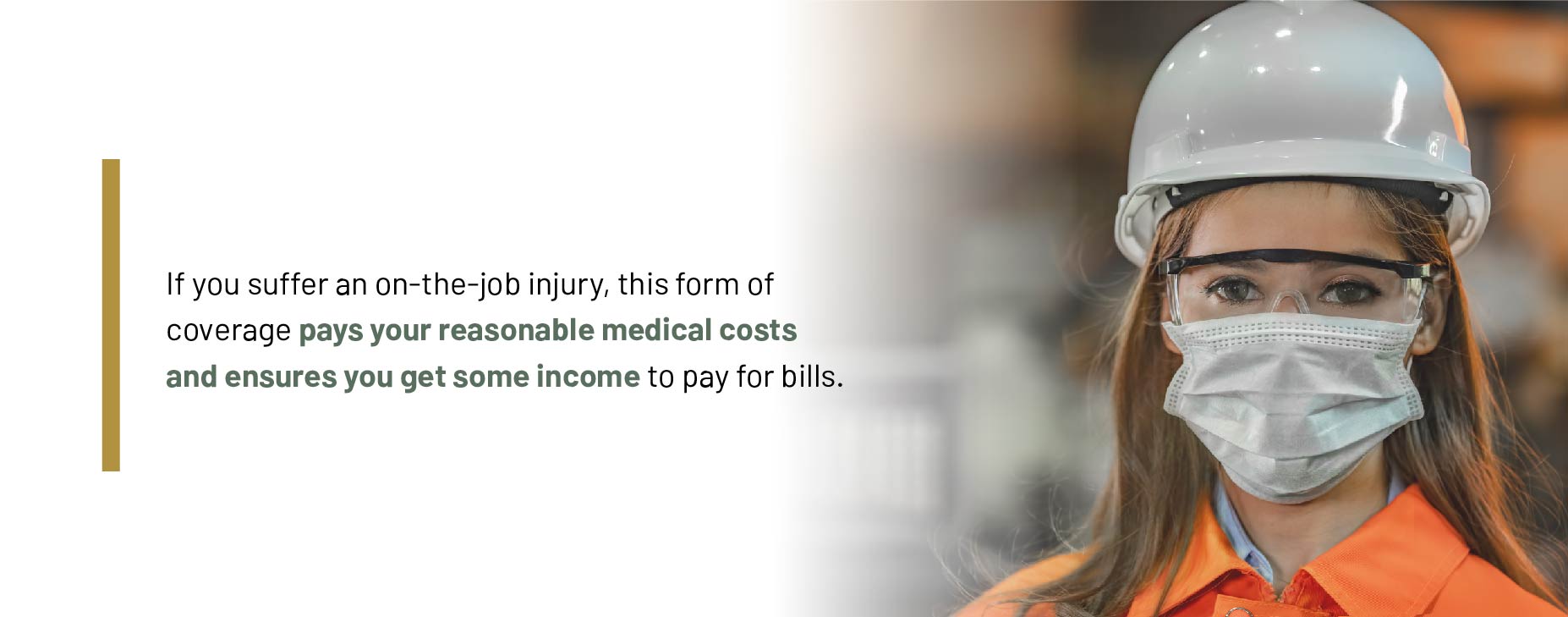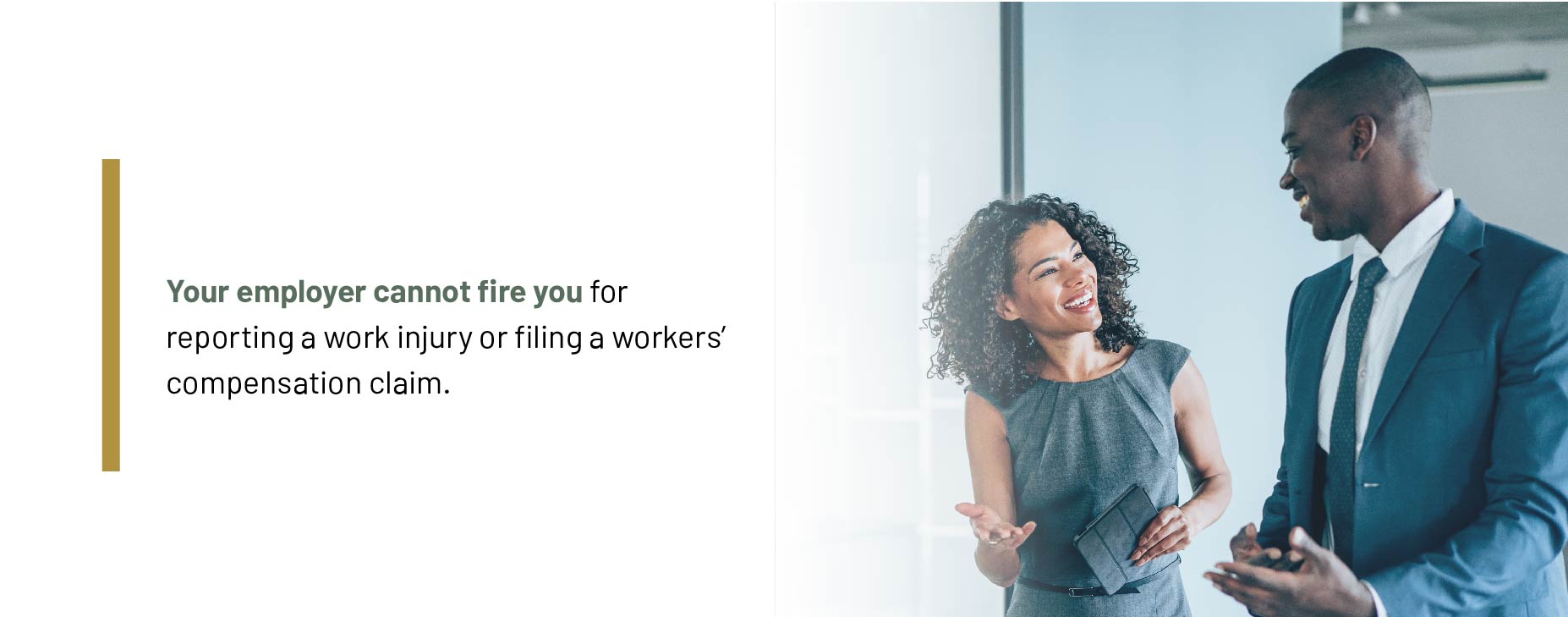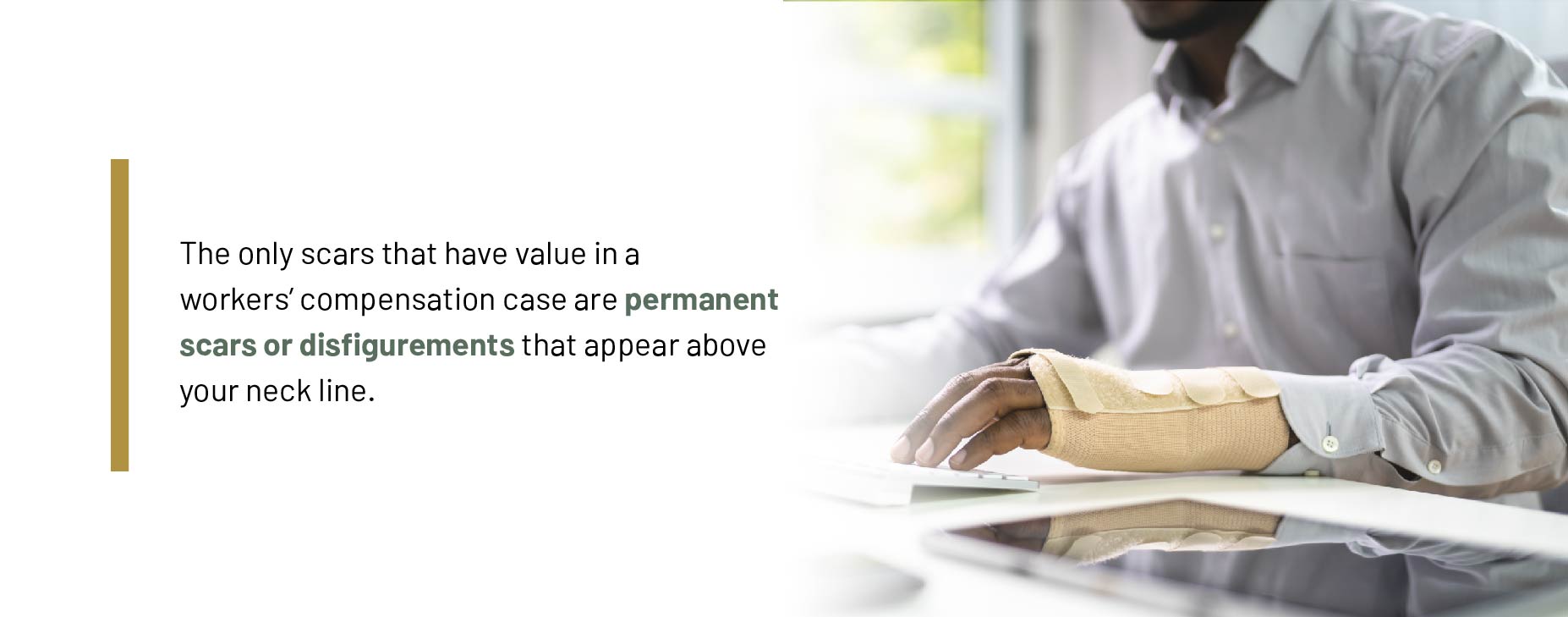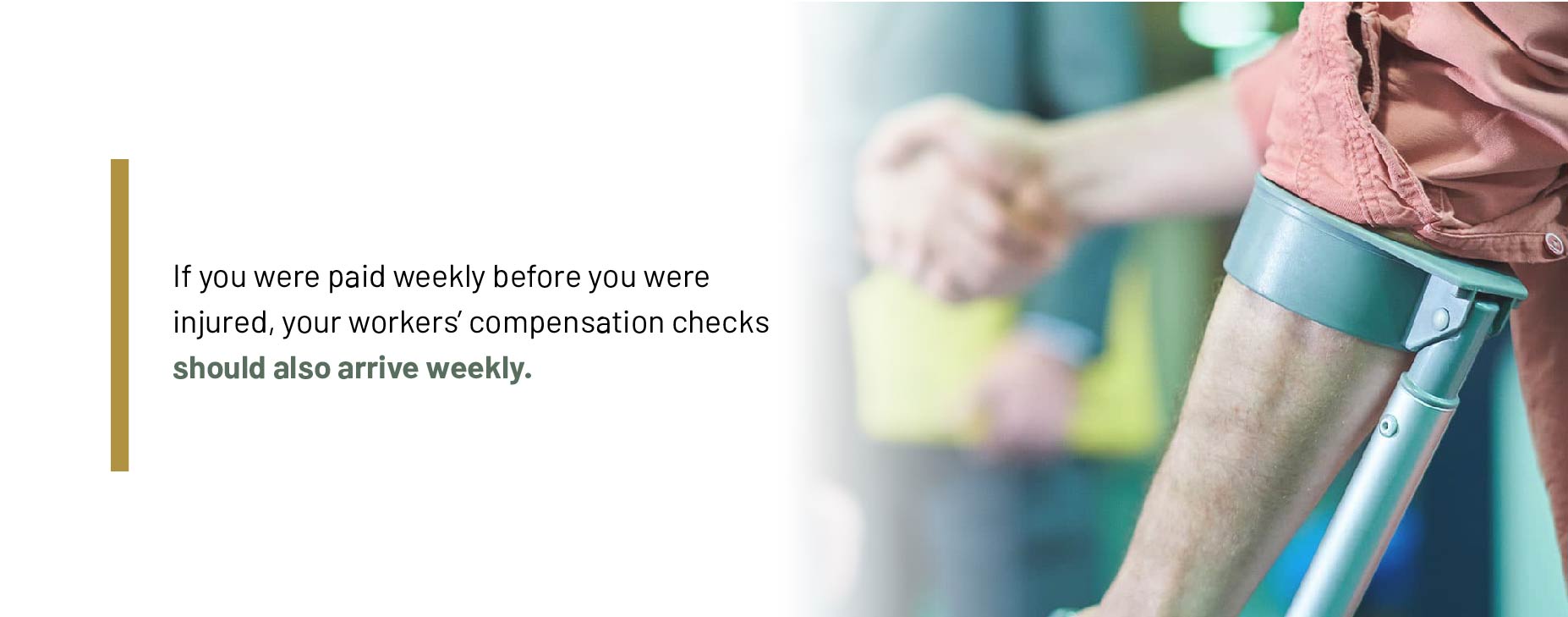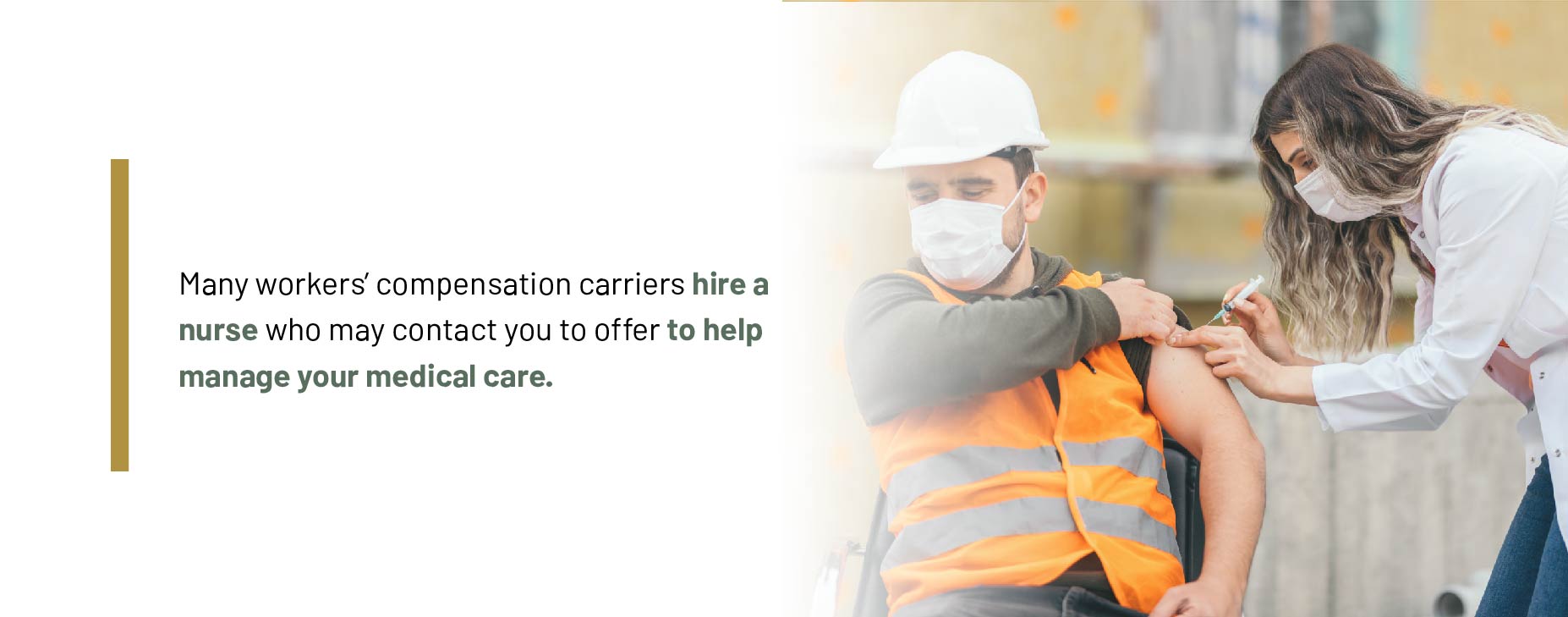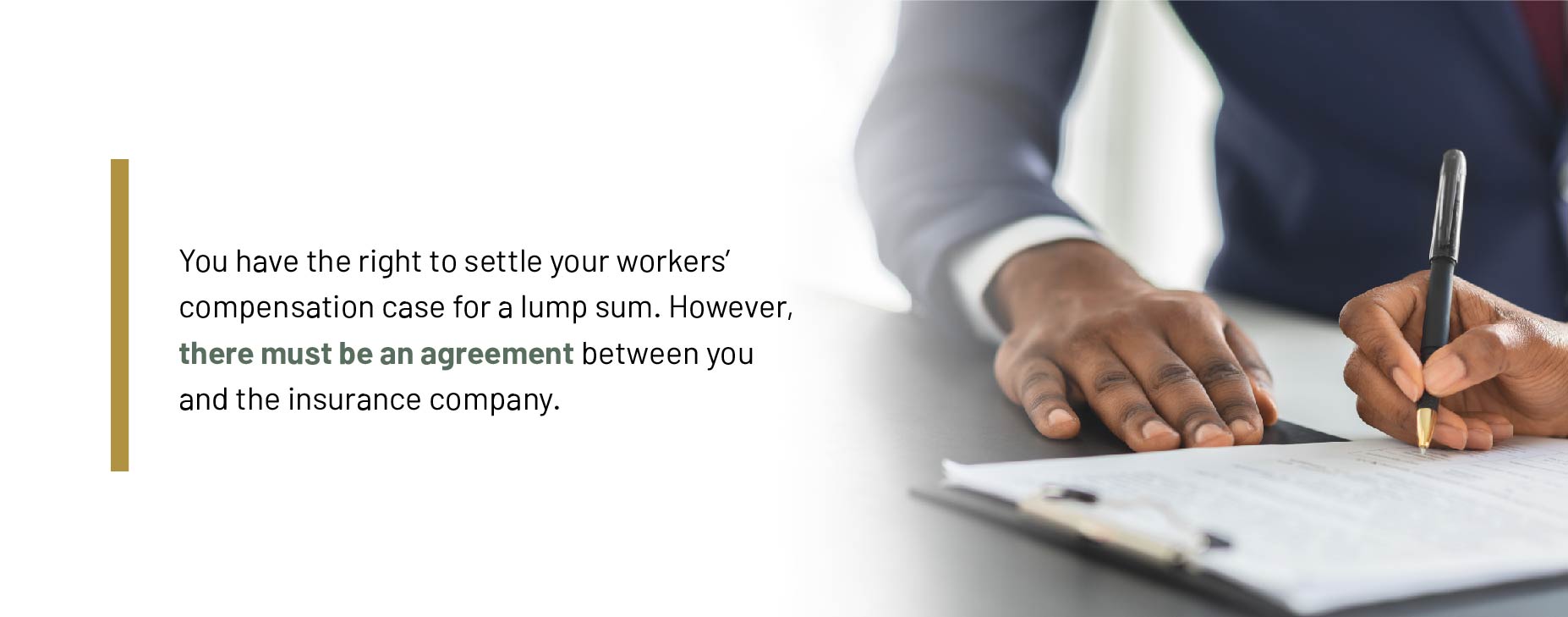Get Answers from Our Certified Worker’s Comp Specialists
Navigating through workers’ compensation issues can be difficult and that is why we are here to help! Check out our facts below to find out more about workers’ compensation benefits or check out Workers’ compensation blog for answers to your workers’ compensation questions.
Ask an Attorney Your Questions
Frequently Asked Questions About Workers Compensation
Have you ever wondered, “How much do workers’ compensation lawyers cost in PA?” or “What is the average workers’ compensation settlement?” If so, you are not alone. The experts at Frommer D’Amico hear these and other questions all the time.
We are routinely asked, “Why should I hire a workers’ compensation lawyer?” and other questions. It’s why we have compiled this FAQ about workers’ compensation in PA. We provide comprehensive answers to the queries we receive most often. If you don’t find your question answered below, contact Frommer D’Amico.
We offer confidential, free case management. This means you can always contact your attorney at Frommer D’Amico to discuss any questions or issues you may have. We will review your injury description, injury report, medical reports and more. We will get you ready for impairment rating evaluations (IREs), independent medical examinations (IMEs) and take a look at your FMLA and other options. All of this comes at no cost to you.
We only get paid if we recover benefits for you, so you never have to worry about getting a bill for legal costs. Many attorneys require clients to pay costs for transcriptions, depositions and many other expenses. Some attorneys even demand these costs up-front. Not Frommer D’Amico. At Frommer D’Amico, you never have to worry about these costs because we pay them, no matter the outcome of your case.
What is workers’ compensation?
Workers’ compensation is an insurance policy that all Pennsylvania employers are required to have for their employees to pay benefits for workers who are injured on the job, or whose work causes a disease or worsening of a pre-existing condition.
There are thousands of rules in a Pennsylvania workers’ comp case, and you should have an experienced attorney available to advise you of your rights and obligations. There is no need to trust the insurance company or your boss to tell you the truth. There is no need to lay awake at night worried that you are not being treated fairly or that you are making mistakes because you do not know the law.
We are here for our clients. We will review medical records, injury reports, injury descriptions, wage calculations, alternative benefits and health insurance. We will review your FMLA options and collective bargaining agreement. We will prepare you for both IMEs and IREs. And yes, at no charge. A successful end to a work injury claim requires workers to know the rules, avoid mistakes and plan ahead.
What are the benefits of workers’ compensation?
Workers’ compensation protects you if you are ever injured at work or have a medical condition worsened due to your work duties. If you suffer an on-the-job injury, this form of coverage pays your reasonable medical costs and ensures you get some income to pay for bills. Workers’ compensation eases the financial worry of an injury and is designed to protect workers. Another benefit is that you do not have to pay for this insurance. Your employer will pay for workers’ compensation coverage for you, either by self-insuring or by working with an insurance provider offering this type of policy for workers.
What compensation benefits are paid for work injuries?
All medical bills that are related to your work injury are paid by the workers’ compensation insurance company, so long as the medical treatment is reasonable and necessary for the injury. If you are losing wages because you can’t work or are working modified duty with lower weekly wages, the insurance company must pay “wage-loss benefits.” These benefits are typically two-thirds of the amount of wages you are losing.
There are some exceptions to the two-thirds rule. There are minimum and maximum amounts under some limited circumstances. A more detailed answer is provided below regarding the amount of your benefits. Also, if you lose a body part or functional use of a body part, you are entitled to wage-loss benefits. Finally, if you have a permanent scar or disfigurement above your neck line, you are entitled to wage-loss benefits in addition to any other wage-loss benefits — a more detailed answer appears below regarding scar claims.
What if I had a pre-existing medical condition that got worse because of my job?
You are entitled to workers’ compensation benefits if your job aggravated or caused a significant worsening of a pre-existing medical condition. Your pre-existing medical condition does not have to be work-related. It just has to be worsened by your work duties to such an extent that it meets the criteria for an injury. In these cases, the question may revolve around whether the aggravation of your injury occurred at work. Sometimes, the issue is complicated because you may not be aware that you had an existing medical condition until it becomes worse due to your work tasks.
If you have a pre-existing medical condition that has worsened due to your work, contact a workers’ compensation attorney at Frommer D’Amico. Whether you have a herniated disc, arthritis, asthma, carpal tunnel syndrome or another condition exacerbated by your job, these cases can be complex, and you will want to speak to an attorney.
Are injured workers required to give a recorded statement to an insurance company after being injured?
No. A request to give a recorded statement is a red flag that your claim is under investigation and the insurance company is looking for reasons to deny your claim. You should consult one of our attorneys to discuss whether you should agree to a recorded statement and discuss the common pitfalls and traps.
Can my employer fire me, or lay me off, after a work injury?
Your employer cannot fire you for reporting a work injury or filing a workers’ compensation claim. If you are fired or laid off after a work injury, you are still entitled to full workers’ compensation benefits. A firing or lay-off may result in the loss of your rights to workers’ compensation checks only if you willfully disobeyed your employer’s rules. If you were fired following a work injury, you should consult one of our attorneys immediately to discuss your rights.
Tip: If you know your injury may keep you out of work for some time, you can ask for FMLA, or Family Medical Leave Act, leave.
Can I have a workers compensation lawyer without telling my employer?
Yes. We have many clients who simply need guidance and answers. There is no rule that requires you to tell your employer you have a lawyer. Of course, that does not apply if your case is in court. Even better, we do not charge any fee to simply monitor your case.
Yes, you read that correctly. If you want an attorney in your corner to answer questions in confidence, there is no fee at our firm for that service. We are happy to share that we have helped hundreds of folks by answering questions and giving advice for free. We only get paid if we win your case in court or settle your case. Otherwise, there is no fee at all if you want to hire one of our attorneys for advice and answers.
Does my scar have any value to my workers comp claim?
The only scars that have value in a workers’ compensation case are permanent scars or disfigurements that appear above your neck line. If you have a scar that is visible while wearing even a low-cut t-shirt, you may have a claim for additional benefits. Scars resulting from neck surgery are commonly compensated in addition to your regular weekly checks.
The value of a scar is typically determined by a judge. There is no set value of a scar. The value varies depending on each judge’s opinion of how unsightly the scar appears — how deep it is, how long it is, how noticeable it is and how discolored it appears. There are time limits on pursuing a claim for a scar. You should consult one of our attorneys to preserve your claim, pursue the claim and get you the best results.
How much should I receive on workers’ compensation?
Generally, you should receive two-thirds of your prior average weekly wage (AWW). There are certain minimums and maximums, depending on your pay. Your employer is supposed to look at your wages over the past year and use a standard calculation to determine your workers’ compensation payment. Your compensation should account for any overtime that you worked and possibly other factors as well.
Your workers’ compensation benefits may be offset for 50% of any Social Security benefits, severance pay, unemployment benefits, a retirement pension — the employer-paid part of it — and other earnings. The Pennsylvania Workers’ Compensation Act allows for several ways to determine the AWW, and it can quickly become a challenge to determine whether you are receiving the benefits you may be entitled to. The minimum rate of wage-loss compensation is 50% of the state AWW or 90% of the workers’ AWW — whatever is lower.
If you think you are being underpaid, we would look at your wage information, or obtain that information for you if necessary, and determine how much you should be getting in each check. If you are being underpaid, we will ask the insurance company to correct the payment, ask for payment in any back-benefits and sue them if necessary to correct the problem.
Can the insurance company send my workers compensation checks late or whenever they feel like it?
No. Your checks should come in the same installments as when you were working. If you were paid weekly before you were injured, your workers’ compensation checks should also arrive weekly.
In addition, benefits are payable for lost time at work on the eighth day after your injury. You will receive retroactive payment after you have missed work for 14 days, and your retroactive payment will cover the first seven days. Your first check should arrive within 21 days of your missing work, assuming you report the injury at once, your claim is accepted and you miss at least seven days of work.
Late checks are common. If your check is late or if it takes longer than 21 days for you to get your first check, the insurance companies will commonly tell you that your claim “came off the system.” Don’t believe it. In this case, you should keep copies of each check and each envelope. On each envelope, write down the date that you received it. Once we establish a pattern of late or sporadic checks, we can notify the carrier and file for penalties if necessary to correct the problem.
How do my medical bills and scripts get paid?
Medical providers who treat you for a work injury should send the bills directly to the workers’ compensation carrier. You should not be required to pay any deductibles or co-pays. You cannot legally be charged for any difference between what the insurance company or employer pays and what a doctor charges to treat you. You should not allow your employer to pressure you to bill your regular health insurance carrier.
Your employer must ensure you understand your duties and rights under Section 306(f.1)(1)(i) of the Pennsylvania Workers’ Compensation Act. You should get a written notice of these duties and rights soon after your injury. Under these and other provisions, all your reasonable and related medical and surgical treatments and services offered by a health care provider or physician are to be paid. This includes hospital stays, hospital treatment, medical supplies, medicine, prosthesis and other needed costs. Your medical costs are to be paid, even if you did not lose time at work and are not eligible for wage-loss benefits. If you seek treatment outside of the state, you may face some charges.
What do I do if workers’ comp won’t pay my medical bills?
This typically means your employer is trying to avoid admitting that you suffered a work injury. If the workers’ compensation carrier denies payment for a medical bill, you may ask your provider to bill your health insurance. Nevertheless, you should call an attorney immediately to take action to avoid collections by the medical provider and determine your rights to correct the problem.
Am I stuck with the company doctor when I’m on workers compensation?
Your employer may direct you to treat with a company physician for the first 90 days after your treatment begins. You must do so only if your employer provided you with a list of “panel” physicians when you were hired and after you report a work injury. This list should be posted in the workplace and should list at least six physicians to be valid. If no such list exits, you may treat with a physician of your choice.
If such a list exists and the list meets the requirements of the Pennsylvania Workers’ Compensation Act, you must seek an initial consultation with a doctor from the list and continue treatment with a doctor on the list for the first 90 days after your injury. Your employer cannot compel you to choose one specific name on the list. You must be free to choose any name on the list.
If surgery is recommended, you may seek a second opinion with a physician of your choice. Your employer or their insurance company will pay for this second opinion. Treatment recommended in your second opinion must be provided by a provider on the list — assuming there is such a list in the workplace — for 90 days. After that, you can choose to seek treatment elsewhere.
Even during the first 90-day period after your injury, you may elect to see a doctor not on the list. If you do this, your employer or their insurance company may refuse to pay for the visit.
Once the 90 days are up, or if your employer does not have a proper list posted, you can seek treatment from a provider of your choice. However, you must inform your employer about the physician or treatment provider you are working with. This is because your employer and their insurance company have the right to receive reports from your physician or health care provider.
If you are getting workers’ compensation benefits, your employer or their insurer may ask you to see a doctor for an examination. This doctor will typically be one of their choosing, and refusal to do so can result in an order from a workers’ compensation judge or even a suspension of benefits if you continue to refuse.
It is important to note that if your injury is an emergency and you are rushed to a hospital or provided with emergency medical care, this treatment will not need to come from a provider on the list. In addition, any treatment you seek must generally take place in Pennsylvania. If you go outside the state, the medical provider may charge you through balance billing.
The choice of a doctor if you have suffered a workplace injury is an important one. A doctor of your choosing is more likely to have your best interests at heart and may make you feel more comfortable. If you have a physician or health care provider already familiar with your medical history, you may be confident you can get the best care from that professional. Not following the rules regarding where and how you get your treatment, however, can mean some of your medical costs are not covered. If you have any questions about your rights in this regard, you should call us BEFORE you seek medical treatment in a non-emergency situation.
Why is a rehab nurse calling me or coming to my doctor’s visits?
Many workers’ compensation carriers hire a nurse who may contact you to offer to help manage your medical care. The nurse works for the insurance company and is typically paid to minimize your medical treatment and try to convince your physician to release you back to work.
You are not required to speak to the insurance company’s nurse. You are not required to allow him or her into your office visits with your doctor. You are not required to allow — and you should never permit — your doctor to speak the insurance company’s nurse without you being present. These nurses often will tell you that your doctor is required to speak to them and that you have no rights to stop it. This is a misrepresentation of the law. Nothing in the PA Workers’ Compensation Act permits your doctor to discuss your confidential medical information with anyone other than you.
The doctor is required to send his bills and notes to the carrier for payment, but this does not mean the doctor is permitted to talk about your medical condition on the phone or in person with your employer or insurance company. You should tell your doctor that any discussions about your medical condition should not occur without your permission or without you being present.
Do I have to go to an independent medical examination (IME)?
The insurance company may request that you attend an examination with a physician they have hired. Typically, the insurance company can send you to an IME up to twice per year. However, if there are a series of repeated IMEs, you may have a basis to object. If there is a dispute in this regard, the insurance company cannot stop your benefits without asking a judge first.
The IME appointment must be at a reasonable place and time. The insurance company generally may not be permitted to send you over an hour away from your home. There is no specific rule as to how far you may be required to travel.
But, if an IME is scheduled, your alarms should be ringing. IME doctors make the most money by disagreeing with your doctor and testifying in court against you. The IME doctor does not have any interest in your case other than making money. If you are scheduled for an IME, we strongly suggest that you speak with us before you attend so you are fully prepared.
Get Help With Your Workers Comp Case
How do I pay for an attorney?
If you are on workers’ compensation, you can hire us at no charge to monitor your case. Yes, we do not charge any fee to give you advice, guide you, deal with the insurance company for you or simply monitor your case with you.
If your claim has been denied, our fee is 20% only if we obtain benefits for you. If the insurance company has sued you to stop or lower your benefits, our fee is 20% . There is no risk to you. No recovery, no fee. If we successfully settle your case, our fee is only 20%.
How do I settle my workers’ compensation claim?
You have the right to settle your workers’ compensation case for a lump sum. However, there must be an agreement between you and the insurance company. Neither party can force the other to settle. A settlement is typically the result of knowing the value of your case and convincing the insurance company your case is worth a certain amount. For our clients, we prepare a detailed written settlement demand backed with facts that justify the amount that is fair to you. We successfully negotiate millions of dollars in settlements every year for our clients.
How can I benefit from a workers’ compensation lawsuit?
Workers’ compensation litigation often occurs when a worker has been getting workers’ compensation benefits, and the employer or the employer’s insurance carrier try to have the benefits suspended or modified.
For example, a common scenario occurs when an injured worker is sent to an IME. The physician performing the IME may determine the worker is ready to return to work. The worker’s doctor may disagree, and litigation may result.
At that point, both parties may be worried they may lose. If the employee loses, they may see all their benefits cut off or suspended. If the employer loses, they may end up paying more than they intended. For both parties, securing a lump sum amount for the injured worker that covers a few years of benefits may be better than facing the risk of losing even more through litigation.
You may benefit from litigation because you may get a lump sum payment, which will offer you immediate stability and certainty. If checks have been arriving late, for instance, a lump sum can seem very attractive. A larger sum can also buy you some time to recover or find light-duty work in another field.
While there is certainly a benefit to getting a lump sum amount, there is no guarantee litigation will work in your favor. Even if you settle your case, keep in mind it will generally mean full compromise and release of the claim. This means you will not be able to pursue further benefits from the insurance company in any way. You will need to pay any medical costs yourself, and you will not get any additional wage-loss benefits.
Since a work injury can continue to result in medical expenses and financial concerns many years after the fact, it is important to carefully consider any and all options and factors before deciding on litigation and a settlement. We recommend you contact us at Frommer D’Amico for an evaluation of your case so we can review the benefits and potential risks of a settlement in your specific case.
How do I know the value of my workers’ compensation claim?
There are many factors in any settlement. One significant factor is your AWW. The amount of your pre-injury wages directly impacts the amount of benefits to which you are entitled. Typically, this is a significant factor in negotiations, but not always.
The second factor that we find significant is what, if any, residual earning capacity you have. That is a fancy way of asking what other work you might be able to do if you are no longer able to return to your pre-injury job. Insurance companies like to assume that, even after a work injury, you could return to other jobs with equal or higher earnings than before you were injured.
We will review your medical condition, work with your doctor if necessary and even hire our own experts to determine how the injury has impacted your future earning capacity. These and other factors go into our settlement demands. Needless to say, it is a complex process, and we pride ourselves on strong settlement demands that are supported by the facts and law in your favor.
When is the best time to settle?
There is no set time when settlements are discussed. Typically, settlement discussions are raised anytime there is contested litigation where your employer is either denying your benefits or trying to stop your benefits. Another time to consider settlement is when it becomes apparent that your injury is permanent and may prevent you from returning to your regular job. Many of our clients use their settlement money to start over, pay down debt or obtain training/education for a career that is less physically demanding.
Call Us Now – Get the Compensation Your Deserve
How long does a case take in court?
If your benefits have been denied, or if you have been sued to stop or lower your benefits, typically it takes 9-12 months from the time when a petition is filed to the time that judge issues a decision. Cases could take more or less time depending on whether there are multiple petitions filed and the number of witnesses who testify.
For settlements that do require an approval from a judge, it only takes about two months.
Who pays workers’ comp litigation costs?
In Pennsylvania, legal costs are paid for by the parties of a claim. In most litigation in the state, barring any special statutes, each party pays their own legal fees. The Pennsylvania Judicial Code at 42 Pa.C.S.A. §2503(9) further states that one party may be awarded legal fees if another party acts in bad faith or essentially files a frivolous claim.
In a workers’ compensation claim, there may be many costs related to your case. Securing PA worker’s compensation facts and abiding by all court requirements can mean paying for depositions, subpoenas, record requests, postage costs, copying, filing fees and more.
When should I let my employer know about my injury?
You should report your injury as soon as possible. You must report not only the injury, but also the date and place of injury and that it occurred on the job. You have 120 days to report your injury in Pennsylvania, but waiting too long can harm your claim.
If you wait longer than 120 days to report the injury, your claim may be time-barred under Pennsylvania’s Workers’ Compensation Act, 77. P.S. § 1-1031. Even if you report within 120 days but delay reporting your injury for some time, your employer may claim you were not injured at work. It is best to err on the side of caution and report the injury at once.
What should I do if my employer refuses to recognize my injury?
If your employer denies your claim, you may be able to file a claim petition or seek alternative dispute resolution with a workers’ compensation judge. If your employer claims you are not eligible for workers’ compensation, alleges the injury did not take place at work, tries to claim you were not injured or otherwise tries to recognize your injury, your best option may be to speak to an experienced attorney.
The certified workers’ compensation experts at Frommer D’Amico have secured over $50 million on behalf of injured workers, and the team only represents workers. This level of experience and knowledge can be useful when it is time to present your appeal. The attorneys at Frommer D’Amico understand workers’ compensation law in Pennsylvania and can help you seek your rightful workers’ compensation benefits if you have been injured.
How can I make sure I get a fair impairment rating evaluation (IRE)?
Impairment rating evaluations (IRE’s) were deemed unconstitutional in the Pennsylvania supreme court. Contact an attorney at Frommer D’Amico if you have any questions or concerns.
Do I have to follow up with job openings my insurance provider sends me?
If your employer offers you a lighter-duty job that allows you to work with your medical restrictions, you need to take the work or risk losing your workers’ compensation benefits. If your employer does not have light-duty work, they or their insurance company may arrange a vocational interview for you to determine whether there is work you can do.
If it is determined that you can return to work in some capacity somewhere, the insurer will conduct a labor market survey to determine what work is available within your geographic area for someone with your experience and your medical restrictions. You will be sent a Notice of Ability to Return to Work, and if you receive this notice, you will be required to start looking for work. If you receive a list of possible jobs through your labor market survey, you will be required to pursue them in good faith.
Of course, there is no guarantee you will receive any job, no matter what the outcome of your vocational interview and labor market survey. The role of the labor market survey and vocational interview, from the perspective of the employer, is to find you employable. If you have been asked to submit to either, contact a workers’ compensation attorney for guidance.
What is the cost of a workers’ comp attorney?
The cost of a workers’ comp attorney varies widely based on a number of factors. It is a good idea to ask the cost of a workers’ compensation lawyer before starting to work with one. Look for an attorney with reasonable and transparent costs, which will save you money. Frommer D’Amico, for example, do not take money out of your paychecks the way other attorneys do. This saves our clients thousands of dollars. Our fees are clearly listed and explained so there are no surprises.
Do you have another question?
If you have additional questions about workers’ compensation not covered here, contact Frommer D’Amico today. Whether you are wondering “How will I get paid for workers’ compensation?” or you need someone to review your medical records or collective bargaining agreement, talk to one of our workers compensation benefits.
We are a personal law firm with three certified workers’ comp specialists, and our sole focus is on workers’ compensation. We only represent injured workers, never insurance companies. We also manage cases for free, never charge you costs and don’t take a fee unless we secure a recovery for you. We never take money out of injured worker’s checks, which could save you thousands of dollars.
At Frommer D’Amico, we are committed to working with you on an individual basis, so by working with us, you will have direct access to a partner’s cell phone and home phone so you can call when needed. If you want real help with a workers’ compensation claim, contact My Comp Lawyers today.
Updated: 9/26/19
Learn More


